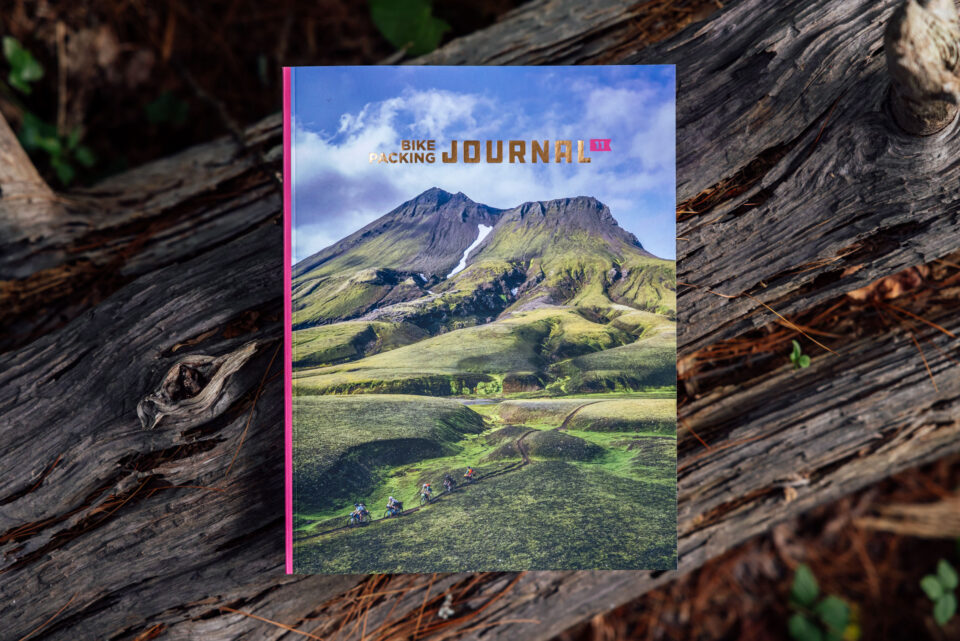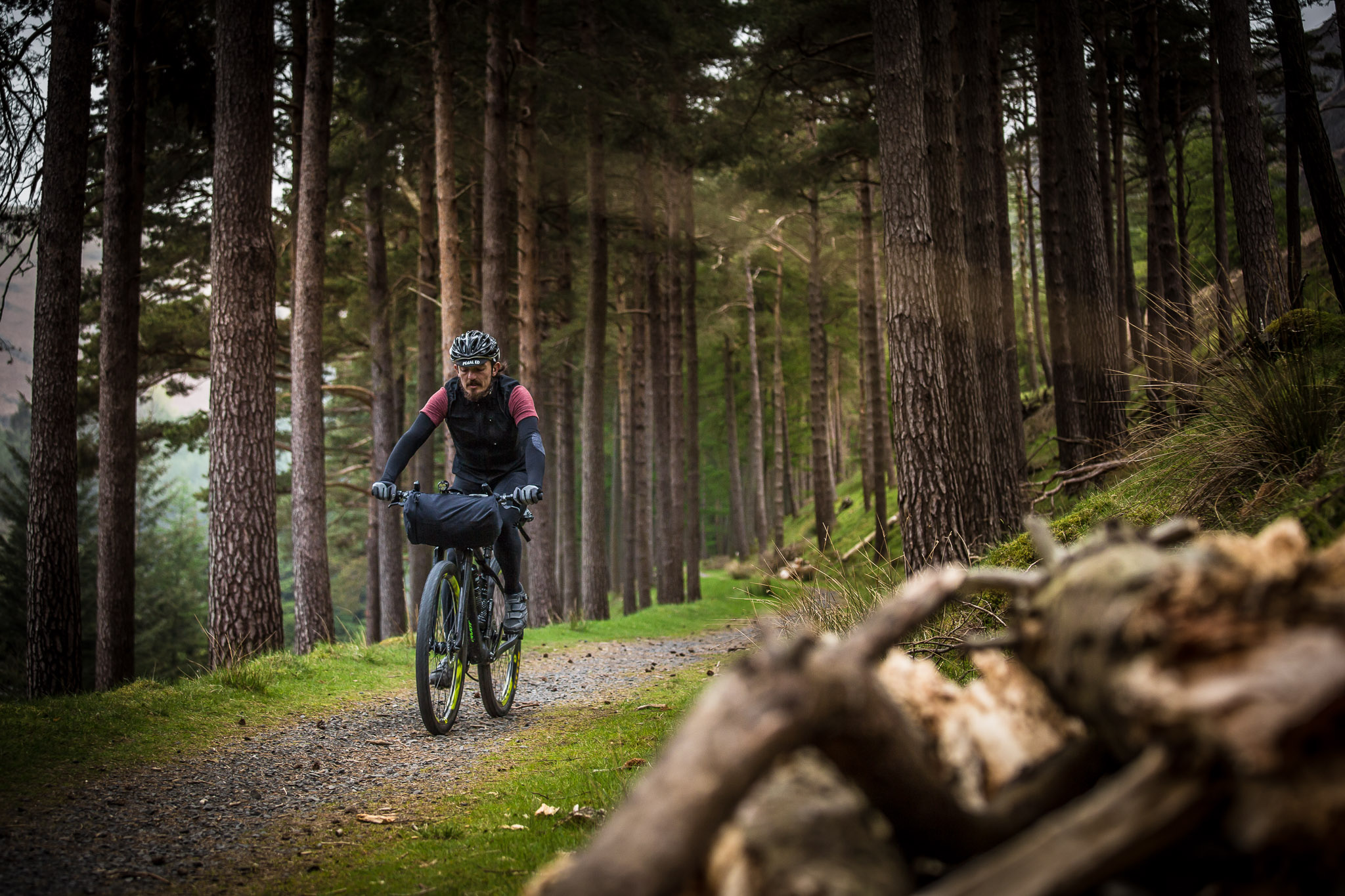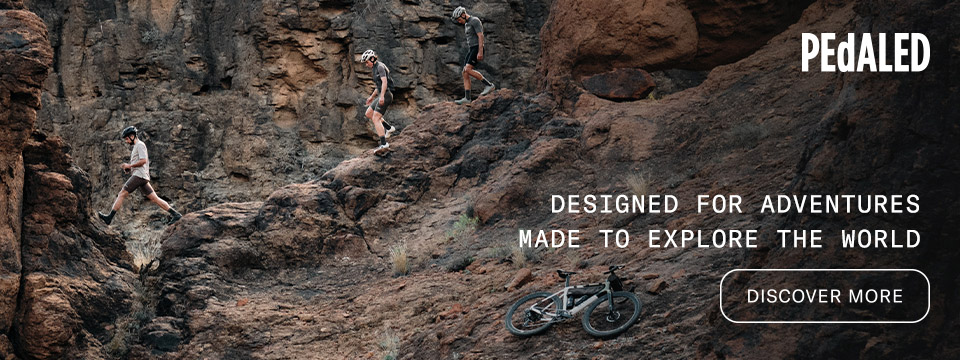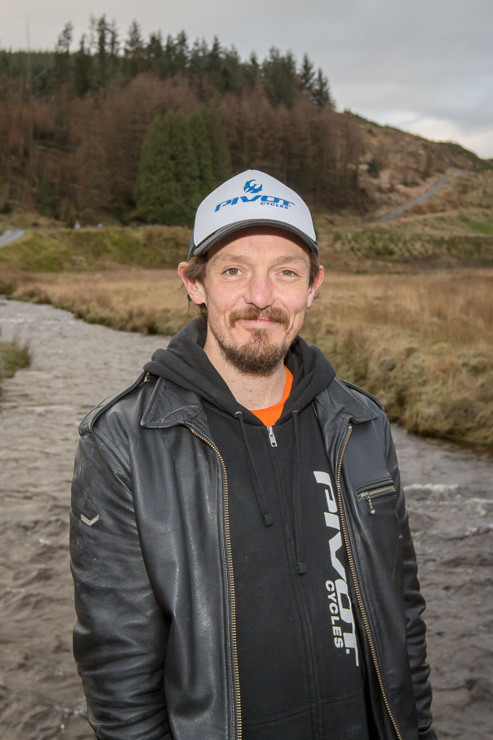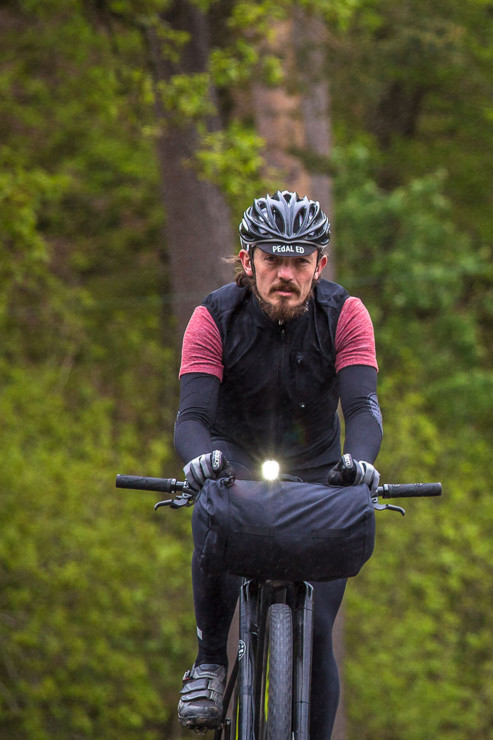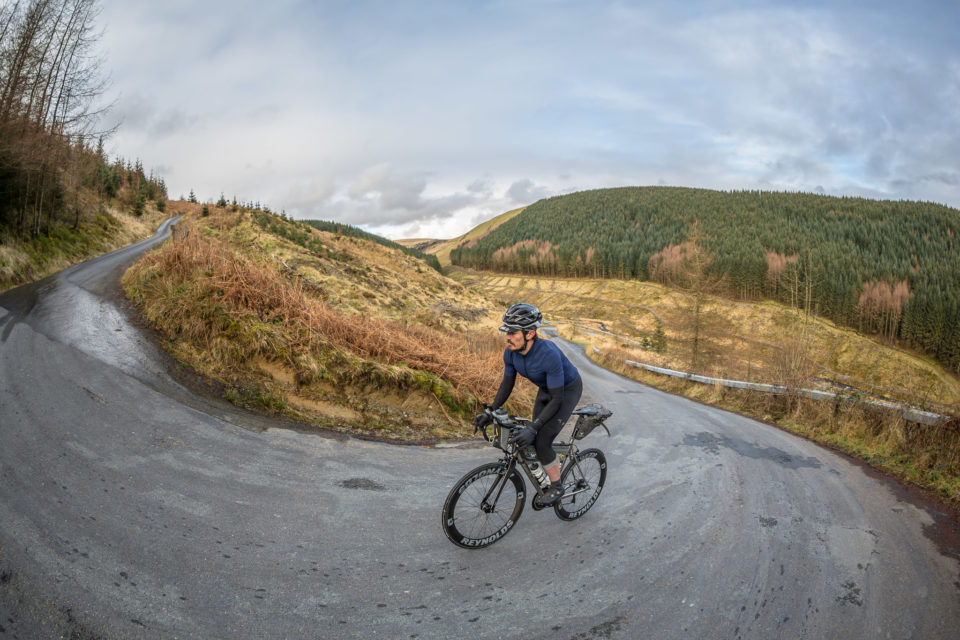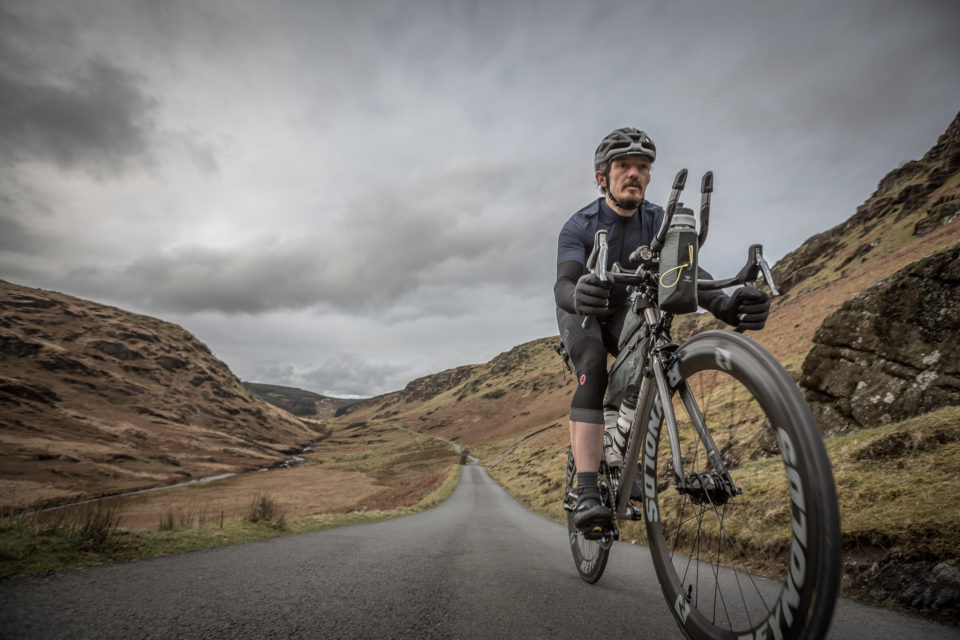In Memoriam: Mike Hall
The 2018 Tour Divide Grand Depart will launch shortly, and weeks of following racers will commence for those of us who aren’t taking part. Again this year, Mike Hall’s dot will trace along the digital route map, encouraging riders to try to beat his course record of 13 days, 22 hours, and 51 minutes, set in 2016. In memory of Mike, longtime fan Thomas Hassler put together this tribute…
PUBLISHED Jun 8, 2018
Words by Thomas Hassler (@10speedcognition), photos by Anthony Pease (@pease971)
A familiar darkness surrounded him. Apart from a single beam of light wavering back and forth, lighting the way ahead, there was no sky or land or living thing to be seen; no sounds other than his own.
Hours earlier he had stopped for food, finding nothing but closed shops and silent, dimly lit streets. He had, given the current situation, little choice but to push on. Waiting meant staying overnight, a length of time he couldn’t afford. The nearest point of resupply was another 120 kilometers ahead, and he was starting to feel the effects of several continuous days on the bike. Before setting off he said to himself, like so many times before, “if you don’t ride, someone else will.”
The rider, whose name was Mike Hall, rolled into the night more than halfway into his journey, his face weathered and thinner than days before. The event he had entered—a race he had no expectation of winning—was the inaugural Indian Pacific Wheel Race (IPWR), a 5,500 kilometer jaunt across the Australian continent. He was riding unsupported, averaging hundreds of kilometers a day, and sleeping, if at all, a few hours a night. His toes were white and soft, his jersey now a loosely fitted top hanging from his compact shoulders. Days before, upon leaving Fremantle at the start, Hall had looked stout, a powerful figure sat atop his bicycle. He looked eager to push the pace, to challenge those who came to win; to make a hard go for riders he felt hadn’t been challenged enough in the past.
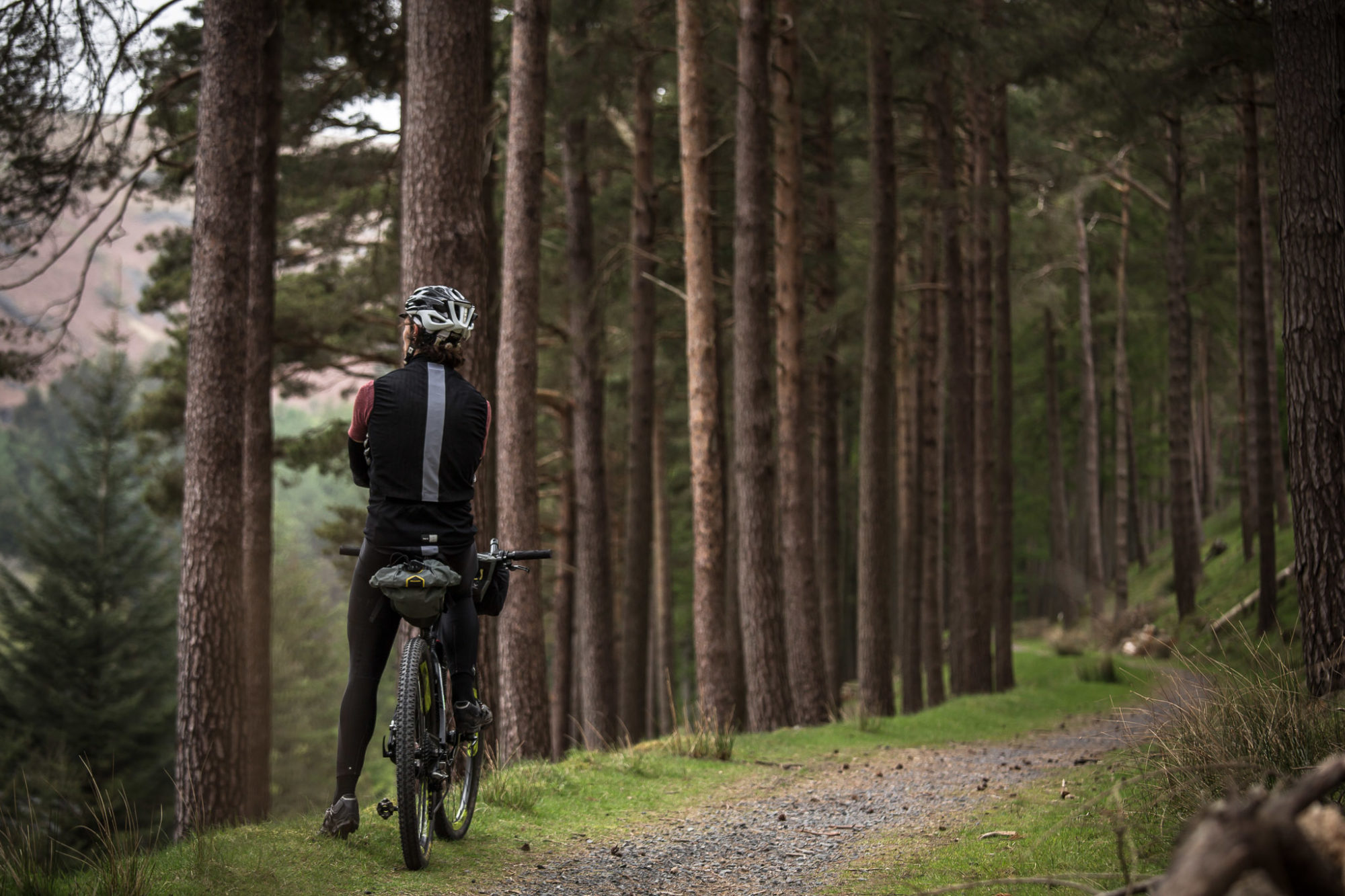
During the 91 days of his World Cycling attempt in 2012 (which Guinness did not recognize because of a change in the rules), he had grown accustomed to the unrelenting solitude of riding, overcoming agonies that would have shattered nearly anyone else. Although he was not physically overpowering, he raced as if being chased. He often shared stories of fighting his demons on the road, but said he never stopped or got off the bike to do so. Moving with his machine, drifting over the pavement for days at a time, Hall reflected his truest self. Outside of racing he felt uncomfortable in ordinary life. Over time he would build up tension before an event or ride; a stress and anxiety of things and reasons and feelings. Yet this strained sense of living was what made Hall so great at extraordinary things. He transformed disquiet into momentum, and had little interest in slowing down.
He found solace in cycling, having begun in 24-hour bike racing before trying his hand at endurance road cycling. He enjoyed the thrill of racing alone, as if it were some kind of double life he was living, a fugitive on the run or a story that wasn’t his own. Time was ephemeral, and he was unattached, never staying in one place for too long, leaving nothing to show he was ever there.
Hall, as is true of many explorers, seemed to be on both an inward journey as much a outward one—the riding a way of subjecting himself to the utmost test of character. He was an outspoken advocate, raising awareness for Newborns-Vietnam, a charity dedicated to providing care in the poorest areas of the country, and even organized a 1,500 kilometer race there as a way of vocalizing his message. During an interview about the race, Hall discussed the purpose of the ride, saying, “The direct work that Newborns Vietnam is doing is going to give more babies a chance to survive…the combination of the sport I love, a great cause, and at the end of the ride seeing first hand what my sponsorship will support ticks all the boxes for me.”
Hall’s adventures as a cyclist inspired people around the world. His mother recalled the way Mike connected with people who’d never ridden a bike: “I’ve heard of people getting bicycles who’d never ridden before,” she said. “I didn’t know people could be so inspired by someone they have never met.” His ability to transform the worlds of those around him, through one of the simplest forms of human motion, was a gift he carried with him as he raced. He was a steadfast defender of others’ rights to take risks and to plan adventures, providing a chance for ordinary people to fit in.
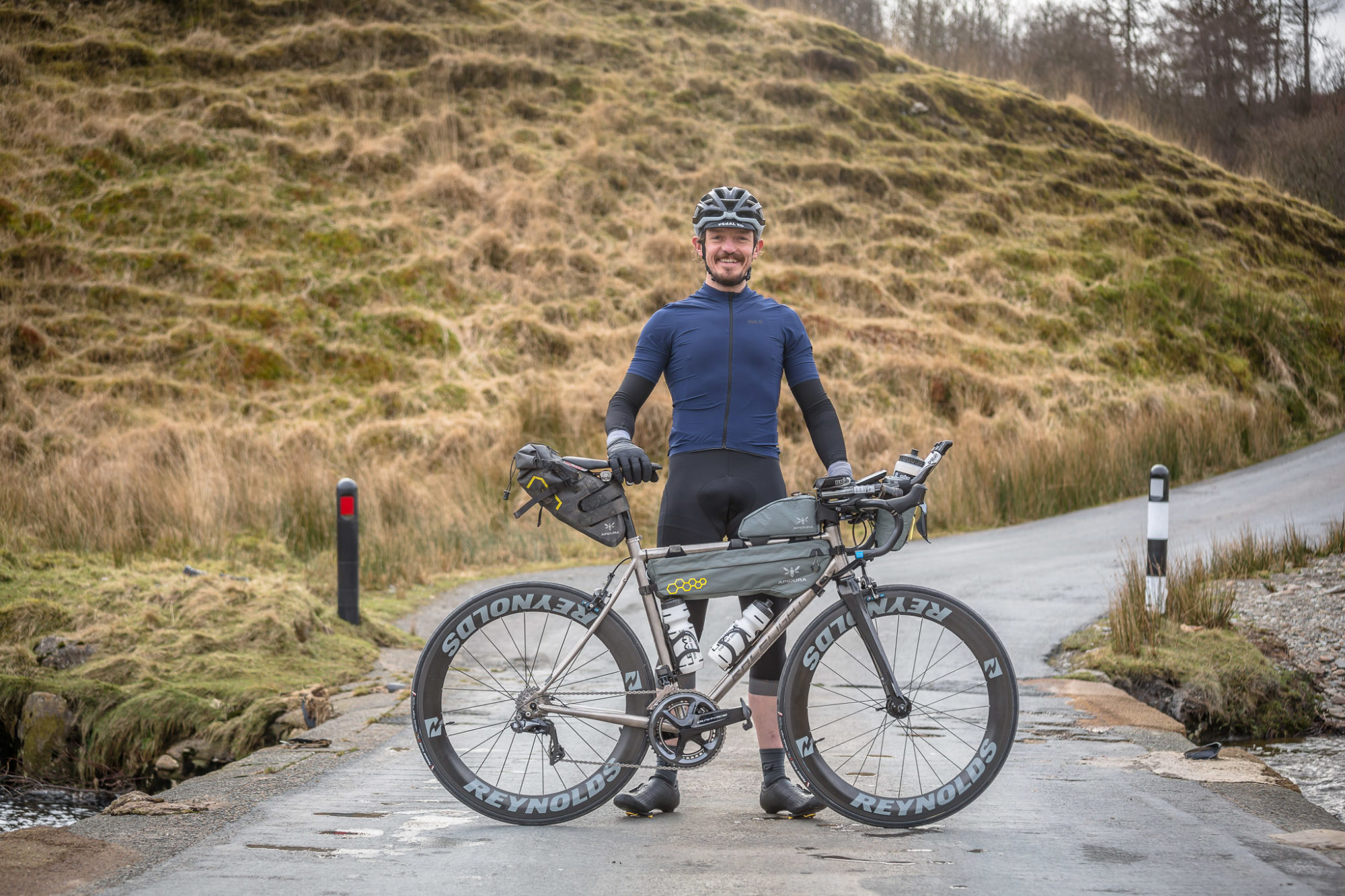
I knew Mike Hall. Not personally, but I admired and loved his attitude towards cycling, and had kept up with his reticent persona for years. He belonged rather firmly to a group of endurance cyclists, a sub-genre of athletes referred to as overlanders or bikepackers. These are immensely devoted and dynamic individuals. Some people don’t understand this cycling niche. Often I don’t understand it, but I find myself drawn in by its potency. These individuals have created another way of experiencing the basic element of riding, which is to consume it “raw,” without questioning its sense, allowing it to morph into its own shape and form as they go.
There is also a realness to it all, one keenly attuned to what the sport feels rather than whether it’s interested in its own status as a sport. That kind of self-awareness is hard to come by for anyone, let alone an entire group. Overland cycling has it, and has provided fertile ground for the growth of two–wheeled rambles. My feeling is that riders like Mike Hall never received the memo saying what you can and can’t do on a bicycle, which is good, because that kind of thinking tends to restrict rather than progress. Hall not only advanced the sport of cycling, he did so in a relatable and universal way, which makes the reality of his death all the more impossible.
This style of riding speaks to people, not just a new up-and-coming generation of adventurers looking at the bicycle as another way to blow off steam. Pushing boundaries resonates with them, and is part of a greater desire to be detached from the demands of normal life without abandoning them completely. So many people (and brands) over the last decade insisted they had found the formula for growing the sport of cycling, but fell short because they set rules that the majority of curiously adventurous people balked at.
Hall, who was only 35 when he died last year, had been growing the sport from sub-culture to global fascination since he was in his early twenties. Yet he was relatively unknown outside the budding community he inhabited. Unlike the often gregarious (but recently more boring) personalities of professional road cyclists, Hall was a magnanimous and altruistic figure—soft spoken and polite, never giving too much in the way of how he was feeling. He also had seemingly endless stamina to do the rides he loved, and to educate riders of all types on the benefits of riding a bike. He was smart, and he was good at what he did; always moving forward, strangely present.
When the Transcontinental made its inaugural debut in 2013, there were 30 people at the start in London. During the fourth edition in 2016, over 1,000 people applied for entry, and 350 selected participants lined up in Geraardsbergen, Belgium, to take a crack at the route. Roughly 3,200 to 4,200 kilometers long, the race isn’t a stage race like the Tour de France. It’s a single ride, timed from start to finish, consisting of four checkpoints that riders must visit in order to complete the route. It is self-supported, meaning good luck getting help from anyone. But that’s the point. It’s a contre-la-montre, a race against the clock, and it attracts a very specific kind of rider. Elon Musk said humans would have to be prepared to die to go to Mars, which I think we can all agree makes sense. But what about to compete in the Transcontinental or to take on the fastest time around the globe? It’s a morose thought, but one that doubtless crosses the minds of riders when planning these kinds of trips.
After his death, Hall’s longtime partner said in an interview that Mike was very aware that being killed while racing was a possibility. “As a racer he knew it,” she said, “and he took it very seriously as a director of the TCR.” Being aware of one’s own mortality is an incarnate quality, and one that is strangely required when participating in self-supported cycling. To take part in these kinds of rides means ignoring what kind of guts it takes to do something so far removed from your comfort zones. It takes something else, something larger than yourself.
As word spread, so too did the cumulative effects of grief and loss catch wind across the world. He was the type of figure attached to the culture whose personality exceeded their sentient presence on Earth. Hall’s death made headlines, not only among cycling-specific outlets, but in mainstream media internationally, including The Independent and The Guardian in his home country of England. Outpourings of thanks and condolences flooded the internet immediately, creating a nationally trending hashtag in Australia and the UK, and a GoFundMe page was established to support Hall’s family back home.
Hall’s memorial service was held in England among family and friends in a white church on a day that looked typically overcast and wet. I watched a small part of the service in a documentary about the IPWR, well after the funeral took place, and felt a wave of grief and happiness as friends offered eulogies of Mike’s accomplishments, his lack of a pain threshold, and an unwavering commitment to his craft. A group of friends during the ceremony undressed from their suits—adorning only their briefs, white button down shirts, and bike helmets—and lined up for a photograph on the grass in front of the church. A row of men stood at back, while another row lay out on the grass in front. A single seat in the center of the group, which sat empty, was flanked by a third row of seated men in the middle. It was the kind of moment that needed to happen; a tradition the men took part in since university as a way of distinguishing themselves from other sports teams that had the money to afford well-made uniforms and kit. As the men began redressing, the camera still fixed on their movements and laughter and smiles, the clouds cleared from overhead and the sun came down gently on the faces of those gathered around the church.
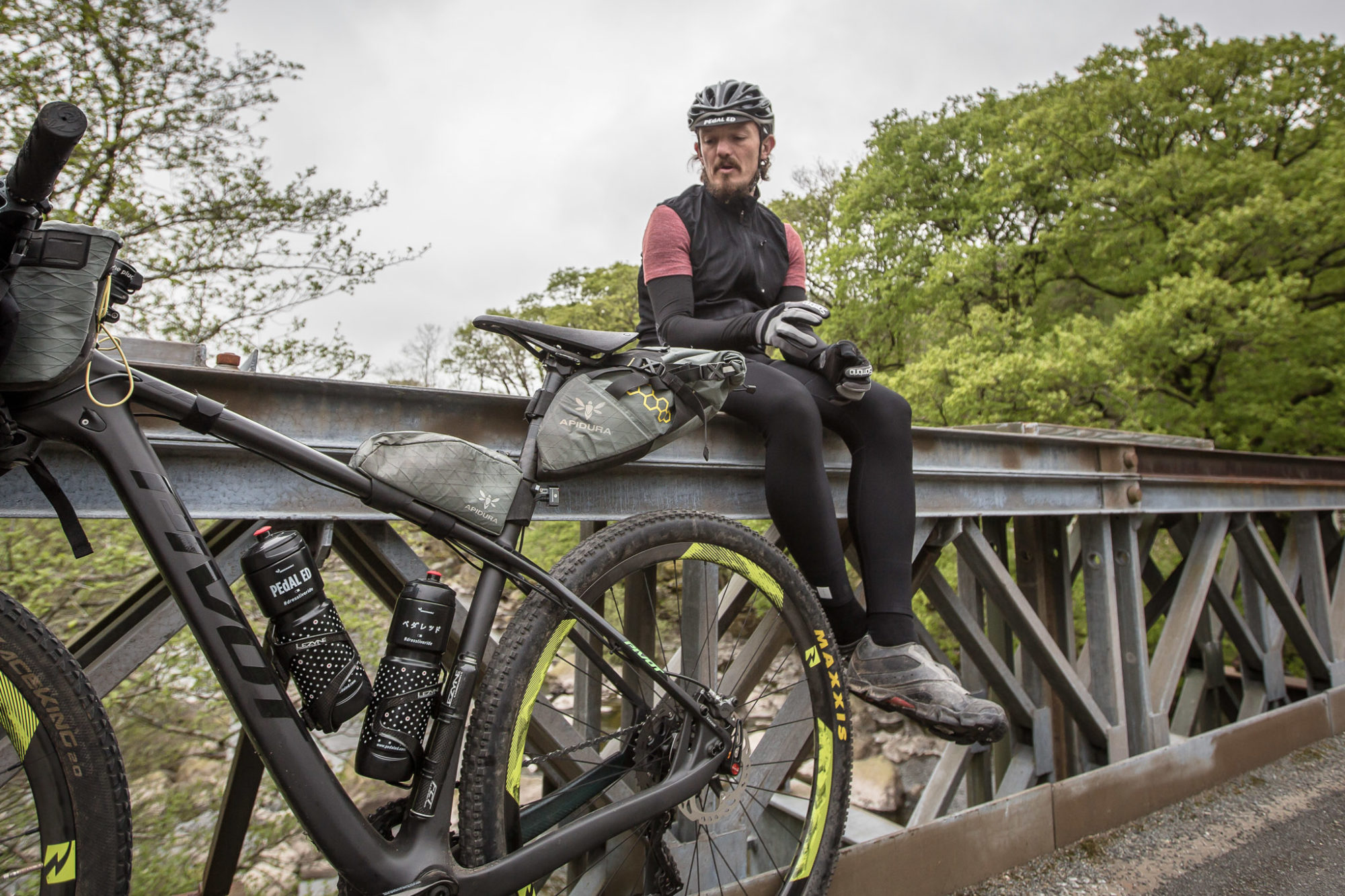
In England, Australia, and several other locations around the world, memorial rides were organized to celebrate the sport of cycling, and to honor Hall’s life. Hundreds of riders gathered on the Opera House steps in Sydney, and in Mid-Wales a fluorescent mass of riders set out en masse, excitedly sharing stories of the rider they admired. Many talked of their desire to participate in the TCR, or of trying their legs at the next IPWR. Kristof Allegaert, Hall’s only and true rival in the sport, spoke in an interview about his adventures with Mike as riders and as compatriots: “It was fun racing against Mike, and we talked a lot about how we raced together at such a level. But I don’t think we really knew what we meant to each other. The world made it bigger than it was, but we just wanted to ride our bikes and make a good time.”
In the year since Hall’s death, the Transcontinental continues to attract large numbers of cyclists, and Hall’s legacy—his omnipresent spirit in the sport—has catapulted this subgroup into the mainstream. The quote “Be more like Mike,” voiced by Hall’s mother in an interview after his death has transcended the use as hashtag into an ideology of how one ought to live. On the anniversary of his death, social media flooded with eulogies and memories of Hall, and many cyclists admitted that if it wasn’t for Mike’s innate kindness and enthusiasm they wouldn’t be riding today.
In an age preoccupied with technology over human experience, Hall will be remembered for the way he brought people together, and for the lasting contribution he made to a sport fundamentally tethered to human interaction. He proved racing was as much about independence as it was about friendship, and that often the best experiences in life are shared together, doing what we love.
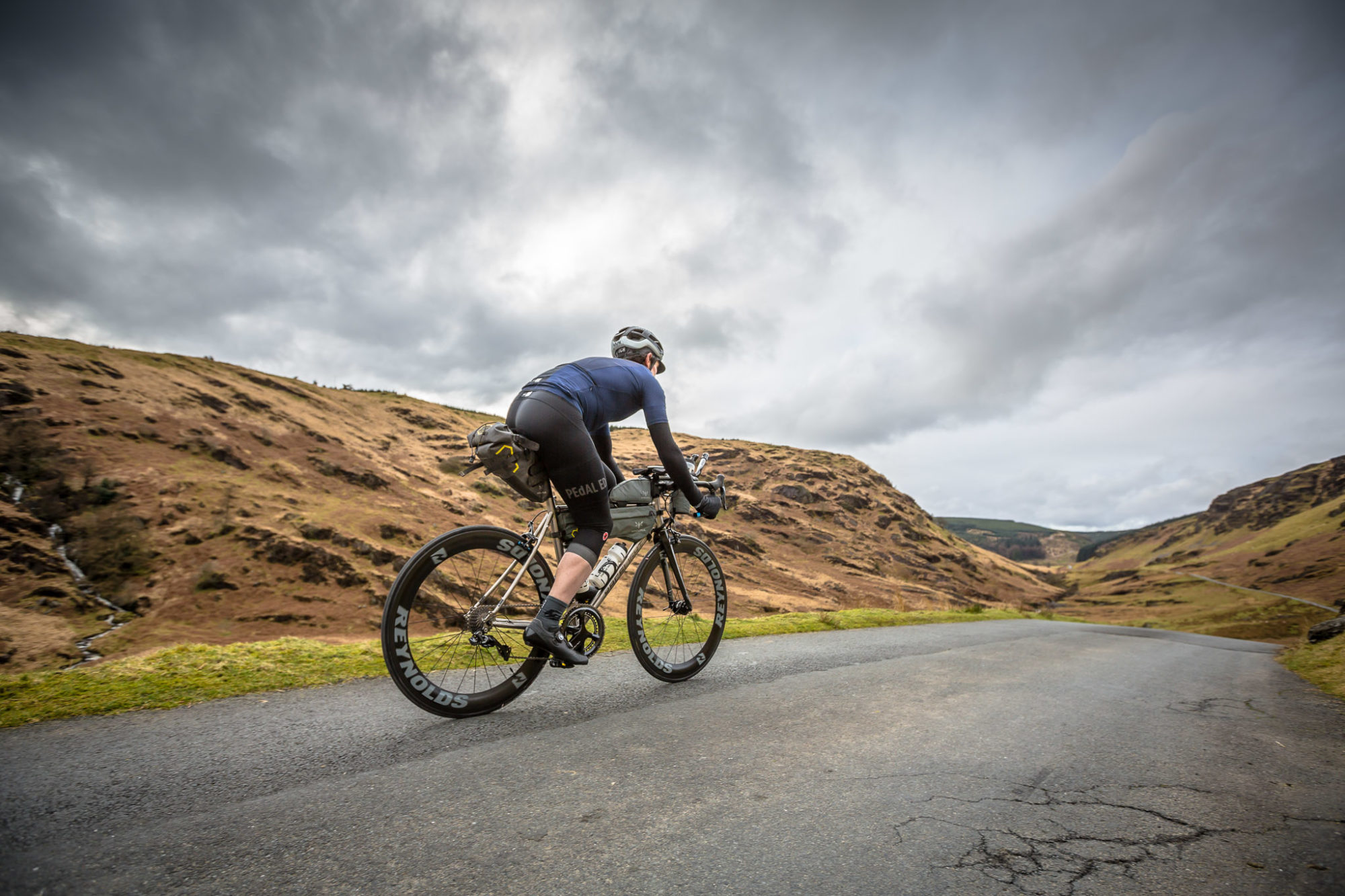
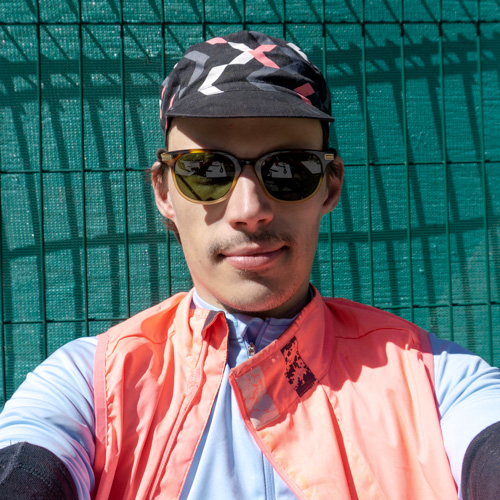
About Thomas Hasler
Thomas Hassler is a Canadian/American living in New York City. He has a degree in Linguistics, which comes in handy once in a while, is a freelance writer outside of his day job as a marketing manager, and spends the majority of his spare time rambling around the Hudson Valley on his bike. He completed the second edition of the Torino-Nice rally in 2017, and has his sights set on Paris-Brest-Paris in 2023. You can see some of his writing and photography at 10speedcognition.com and on Instagram @10speedcognition.
Please keep the conversation civil, constructive, and inclusive, or your comment will be removed.



